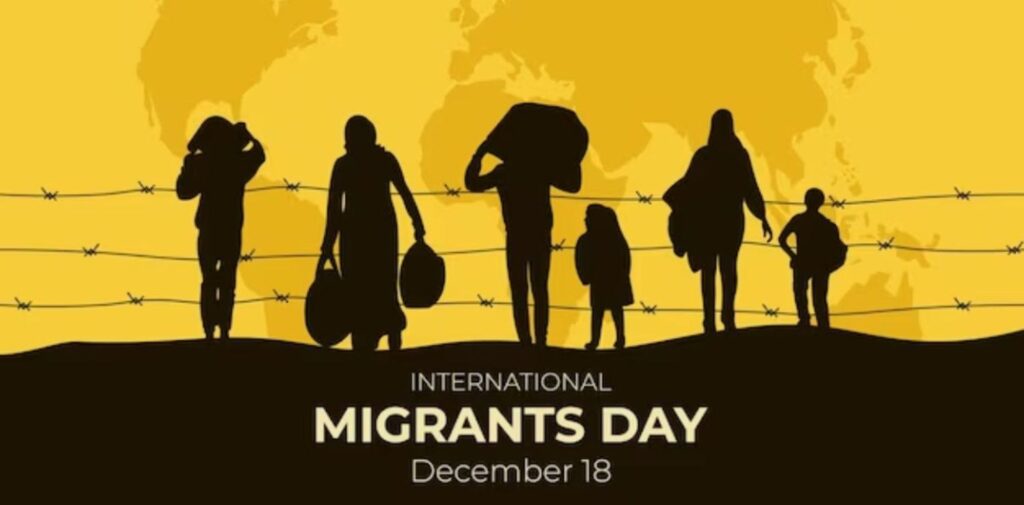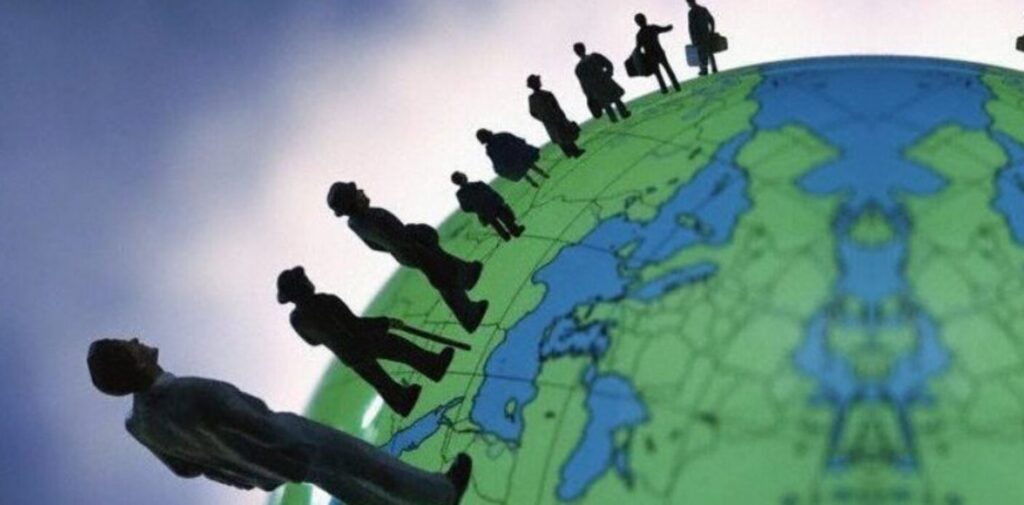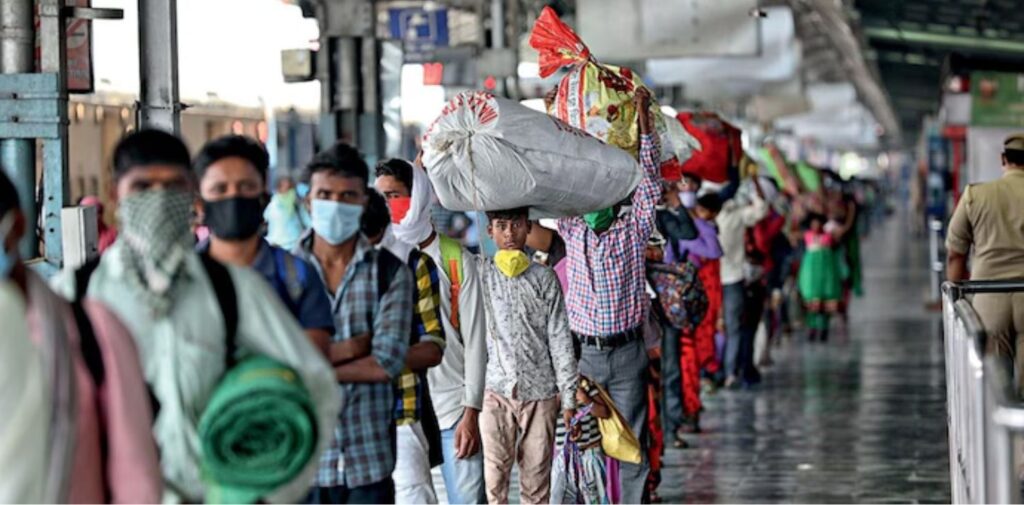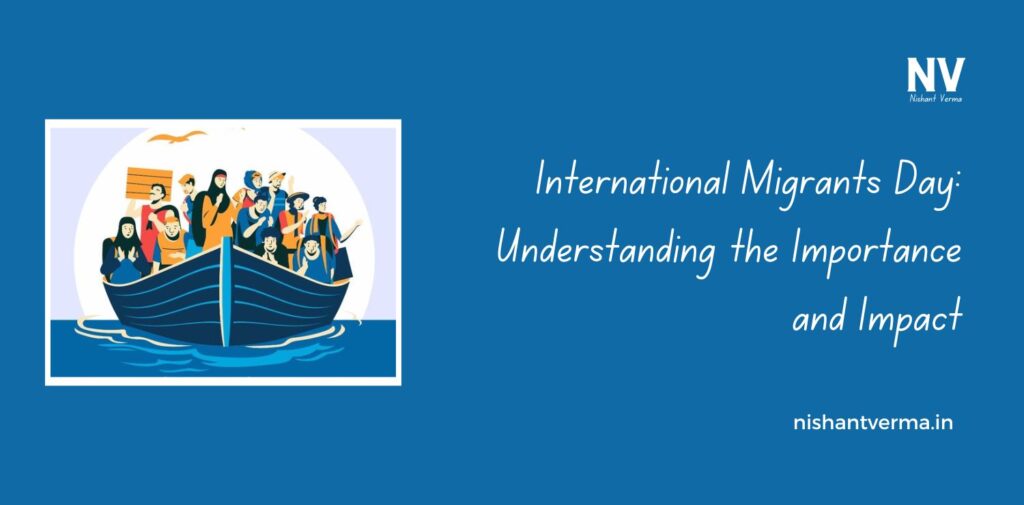Every year, December 18 is celebrated as International Migrants Day. This day is dedicated to raising awareness about the challenges that migrants face and the contributions they make to the world. Migrants are people who leave their home country to live in another, either temporarily or permanently, for reasons such as work, education, family reunification, or escaping conflict or natural disasters.
In India, the topic of migration is especially significant because millions of people migrate both within the country and abroad. India has long been a country with both internal and external migration patterns. Understanding and appreciating the struggles and successes of migrants is crucial for creating a more inclusive and compassionate society.
What is International Migrants Day?
International Migrants Day was first observed in 2000 when the United Nations General Assembly decided to celebrate this day to honour the rights and dignity of migrants. It was established following the adoption of the International Convention on the Protection of the Rights of All Migrant Workers and Members of Their Families in 1990. This convention highlights the importance of safeguarding the human rights of all migrants, regardless of their legal status.
The day emphasizes the need for global cooperation in addressing issues like discrimination, exploitation, and other hardships faced by migrants. It also aims to raise awareness about the positive contributions migrants make to society and the economy.

Migration Trends in India
India has one of the largest migrant populations in the world. Migration in India occurs on both a domestic and international level.
- Internal Migration: Within India, millions of people move from rural areas to urban cities in search of better job opportunities, better living conditions, and better access to education and healthcare. According to the 2011 Census, over 450 million people in India were migrants within the country, making it one of the largest migration flows in the world.
- People from rural areas in states like Uttar Pradesh, Bihar, Odisha, and Madhya Pradesh frequently migrate to metro cities like Delhi, Mumbai, Bengaluru, and Hyderabad. Internal migration in India is largely driven by economic factors, as people move to cities for work in industries like construction, retail, and hospitality.
- International Migration: Indians also migrate abroad in large numbers, for reasons ranging from employment to education. According to the Ministry of External Affairs, around 17 million Indians live abroad, with countries like the United States, the United Arab Emirates, Saudi Arabia, Canada, and the United Kingdom being popular destinations. Many Indian migrants move to these countries in search of better jobs, better living standards, and educational opportunities for themselves and their children.
- The Gulf countries are home to millions of Indian migrant workers, especially in sectors like construction, domestic work, and hospitality. Many of these workers face difficult conditions, including long hours, poor wages, and lack of access to basic rights.
Why is International Migrants Day Important?
- Highlighting Migrants Rights: Migrants often face discrimination and exploitation. They may be denied basic rights, such as proper healthcare, education, and the ability to access social services. International Migrants Day brings attention to the need to protect these fundamental human rights for all migrants, no matter where they come from or where they are going.
- Promoting Integration: Migrants bring a wealth of cultural diversity, knowledge, and skills that can benefit the societies they join. International Migrants Day promotes the idea of inclusion and integration. In India, where diverse cultures and languages already exist, the integration of migrants is essential for a harmonious society. It is essential to respect and value the contributions that migrants make to the economy, culture, and social fabric of the country.
- Raising Awareness About Challenges: Migrants often face significant challenges when they move to a new place. These challenges include language barriers, lack of legal protection, exploitation in the workplace, and cultural adjustments. International Migrants Day serves as an opportunity to raise awareness about these issues and encourage governments and communities to address them.
- Celebrating Contributions: Migrants play a significant role in both the countries they leave and the countries they move to. They contribute to the economy by filling essential jobs, paying taxes, and boosting demand for goods and services. In India, migrant workers contribute to industries like agriculture, construction, and manufacturing. Remittances sent by Indian migrants abroad also play a crucial role in supporting families back home and contributing to the country’s economy.
- Fostering Solidarity: International Migrants Day encourages people to come together to support migrants. It reminds us of our shared humanity and the need to protect the rights of those who are most vulnerable. Whether it is providing legal aid, helping them with language skills, or simply showing kindness and understanding, solidarity with migrants is essential for a more just world.

Migrant Workers in India: A Closer Look
In India, migrant workers are often employed in sectors like construction, agriculture, domestic work, and manufacturing. Many of these workers come from states like Uttar Pradesh, Bihar, Odisha, and Jharkhand, seeking employment in cities like Delhi, Mumbai, and Chennai.
While many of these workers contribute significantly to the economy, they often face poor working conditions. They are vulnerable to exploitation and abuse due to a lack of legal protection, inadequate housing, and low wages. Many of them live in informal settlements, far from the benefits of formal employment and social services.
The COVID-19 pandemic highlighted the vulnerabilities of migrant workers in India. During the lockdown, millions of migrant workers were stranded in cities with no work, no income, and no way to return home. The government’s relief efforts were not always sufficient, and many migrant workers faced hunger and uncertainty. However, the pandemic also sparked greater awareness about the plight of migrant workers and the need for better support systems.

What Can We Do?
There are several ways that we can support migrants, especially in India:
- Support Migrant Workers’ Rights: Advocate for better labour laws and better working conditions for migrant workers. Ensuring that migrant workers have access to fair wages, healthcare, and housing is essential.
- Promote Education and Skill Development: Migrants often lack access to education and skill development programs. Providing training opportunities can help them secure better jobs and improve their lives.
- Foster Inclusion and Respect: It is essential to create an environment where migrants are respected and included. A welcoming attitude toward migrants, whether they are from within India or abroad, helps create stronger and more cohesive communities.
- Raise Awareness: Use International Migrants Day as an opportunity to educate people about the challenges faced by migrants. Awareness campaigns can help combat prejudice and discrimination.
Conclusion
International Migrants Day is an important occasion to recognize the struggles and contributions of migrants worldwide. In India, where migration is a common part of life, this day offers an opportunity to reflect on the needs of migrants and work toward creating a more inclusive and fair society. By supporting the rights and well-being of migrants, we can build a more compassionate world for everyone, regardless of where they come from.




